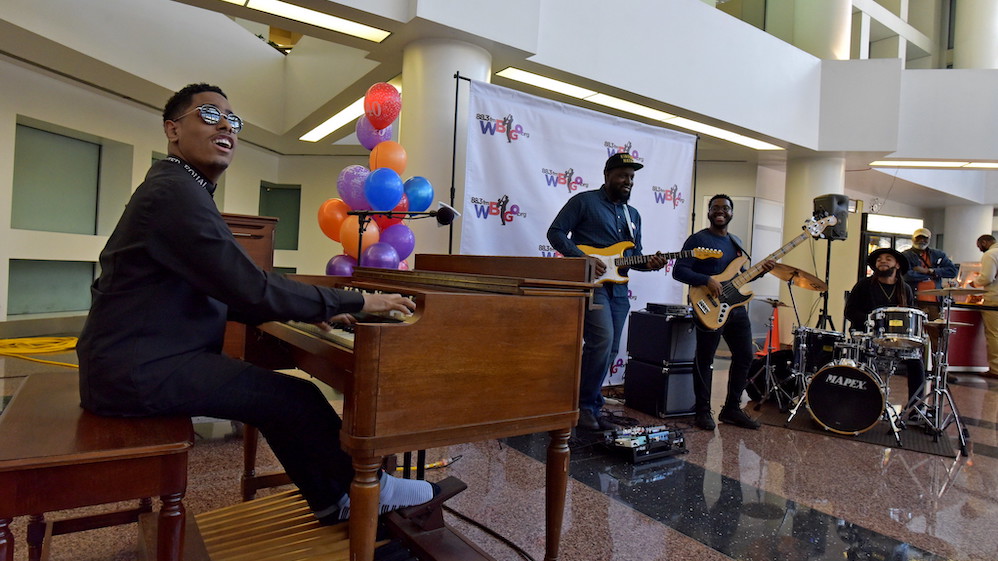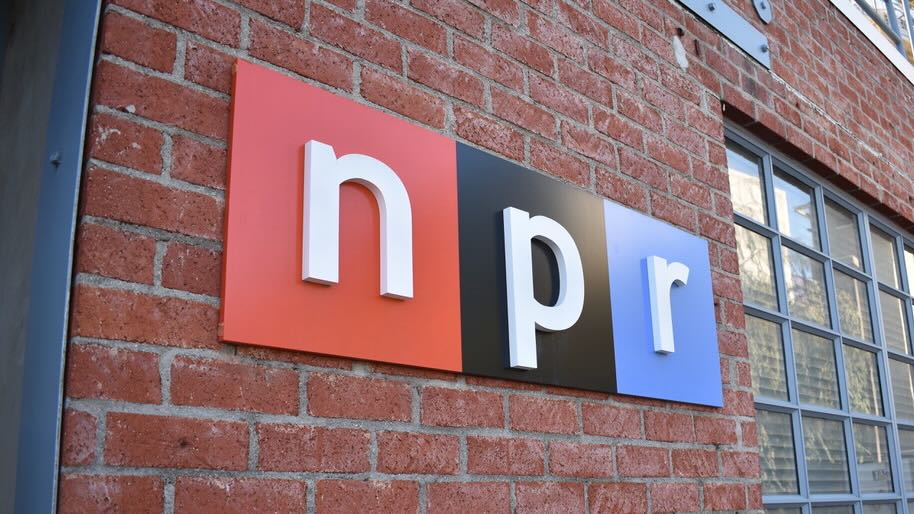New grant gives jazz stations a ‘monumental opportunity’

Courtesy of WBGO
The Matthew Whitaker Quartet performs for WBGO's Lunchtime Concert series in 2019.
Five public radio jazz stations will collectively receive more than $1.3 million through a grant-funded project aimed at developing ways to reach new audiences.
The Jazz Media Lab, initiated and funded by the Doris Duke Charitable Foundation, will provide each station with at least $225,000 over three years. Each station is also eligible for an additional $50,000 to fund an innovation project around issues such as audience, platforms or generating income.
The participating stations are KMHD in Portland, Ore.; KNKX in Tacoma, Wash.; KUVO in Denver; WBGO in Newark, N.J.; and WRTI in Philadelphia.
The grant is intended to “provide capacity-building support,” said Maurine Knighton, program director for the arts at the Doris Duke Charitable Foundation. Stations will receive resources that will allow them to “craft innovative delivery platforms for jazz music” and develop “new ways of engaging creatively with living jazz artists and with the music that those artists are creating,” Knighton said.
The grant will also help stations learn from each other and gain insights from audience data through a national benchmark study of jazz audiences. Stations will also receive technical assistance in their efforts to build greater racial diversity among their staffs, audiences and governing boards, Knighton said.
WBGO CEO Steve Williams called the grant a “monumental opportunity” for the participating stations. He said that he sees one of the “core functions” of the project as gathering data to better understand the audience.
“With all due respect to all of those wonderful people who operate jazz stations in the public media space and outside of the public media space across the country, one of our weaknesses in the marketplace is … the lack of understanding of the audience and the assumptions that are made with regard to providing service to our constituents,” Williams said.
Williams also sees the Jazz Media Lab as a “unique opportunity to learn from each other and to help and support each other.”
“How, for example, are they utilizing their online streaming capabilities at KNKX?” he said. “How is WRTI formulating a strategy for podcasting?”
And Williams is looking for stations to learn how to “fill the void” created by the loss of live performances during the pandemic.
With so many options for listening to jazz and audio in general, jazz broadcasters “have to come up with new ways to reach and engage and to compel our listeners” to choose their station’s offerings over other options, Williams said.
The Doris Duke Charitable Foundation has been researching the landscape of jazz radio for more than a year. Through a consultant, the foundation determined that jazz stations are “undercapitalized” and “under-resourced,” and that “there was enough ‘there’ there that a relatively modest amount of support could make a significant difference to those stations and help us … pursue our foundation goals,” Knighton said.
“We think that it’s a landscape that does not receive enough attention and support in terms of philanthropic resources,” Knighton said. “We see jazz radio in particular as a way to support jazz artists. And a lot of the work that we do is really centered around supporting individual artists, and so we know that helping these stations be as robust as possible will help that aim of supporting the artists as well.”
“It’s nice for the jazz stations to get this kind of attention to help to bring us together and … exchange ideas,” said Joey Cohn, GM of KNKX. The station airs news and jazz, and also runs the Jazz24 stream.
Cohn said that he believes jazz has “so much potential to reach so many more listeners than it currently does.” KNKX’s research has shown that there are a lot of jazz fans, but “they don’t necessarily know about us in this market,” he said.
The grant enables jazz stations to talk and strategize about new ways to attract a younger audience, Cohn said.
The grant is “a big deal,” Cohn added. “It’s a shot in the arm for us. It’s also great for us to be able to message this to the Seattle/Tacoma area.”
Donors and foundations “don’t like to go it alone,” he said. “They like to know that their support is being backed by a broad community, and so I think it has significance in that way, too.”







Great stations with great leadership. Looking forward to what is explored and shared as a result of this generosity and commitment towards America’s art form.